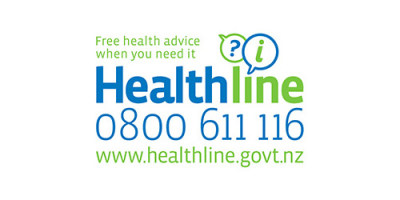RSV and other viruses: Please do not visit patients in hospital if you are unwell
Nelson Marlborough, like other regions in New Zealand, is experiencing an increase in respiratory illness amongst pre-school aged children and infants.
Respiratory syncytial virus (RSV) is one of the causes of illness that has been identified. RSV is a common virus that affects all age groups but is especially severe for infants less than one year old, for older people and people who are immunocompromised. It is very infectious and can easily pass from person to person through coughing and sneezing.
To help protect our vulnerable patients, and also our staff, from catching RSV we:
- have closed maternity wards, children's wards and special care baby units to visitors (excluding a child's immediate caregiver)
- ask people not to visit patients in any ward in our hospitals if they have cold or flu symptoms
- ask people with outpatient appointments to phone before their appointment if they are unwell, for advice about what to do
- ask people who have to be in our hospitals to take precautions if they are unwell: ask for a face mask during your visit, sanitise your hands, wash your hands thoroughly before entering the hospital and try to avoid touching too many things.
RSV symptoms and what to do if you have them
RSV symptoms include a runny nose, decrease in appetite, coughing, sneezing, fever (often mild) and/or wheeze. In some cases, it can cause more serious illness such as bronchiolitis (narrowing of airways in infants) and pneumonia. Very young infants (especially premature babies and those exposed to smoking), older adults and those with chronic medical conditions are more at risk.
- if you have RSV-like symptoms and are concerned or are getting worse, you should contact your GP or Healthline (0800 611 116) for assessment and advice
- early medical advice is especially important for those with underlying medical conditions such as asthma, diabetes, cancer, heart and lung disease and some autoimmune diseases, or for severely overweight people and pregnant women
- do not return to childcare, school or work until your symptoms have resolved.
When to seek urgent advice
Parents and caregivers should seek urgent medical advice if a child has symptoms and also:
- is under three months old
- is breathing fast, noisily or is having to use extra effort to breathe
- looks pale and unwell
- is taking less than half their normal feeds
- is vomiting
- has not had a wet nappy for more than six hours
Parents and caregivers should call 111 for an ambulance if a child:
- has blue lips and tongue
- has severe difficulty breathing
- is becoming very sleepy and not easy to wake up
- is very pale
- is floppy
- has breathing that is not regular, or pauses in breathing
How to prevent the spread of RSV and other viruses
- keep children home when they are unwell; they should not attend day-care centres or kindergarten
- cover coughs and sneezes with a tissue
- regularly wash hands with soap and water for at least twenty second and dry them thoroughly
- use an alcohol-based hand sanitiser if hand washing facilities are not available
- avoid close contact with sick people
- people with underlying medical conditions who are at increased risk of complications are strongly encouraged to avoid contact with sick people and have good hand washing practices
- if correctly worn, masks are valuable to both prevent spread from infected people and reduce the risk of getting infected if you are close to people who may be infectious
This information can be attributed to Dr Nick Baker (Chief Medical Officer) and Dr Andrew Lindsay (Medical Officer of Health).





